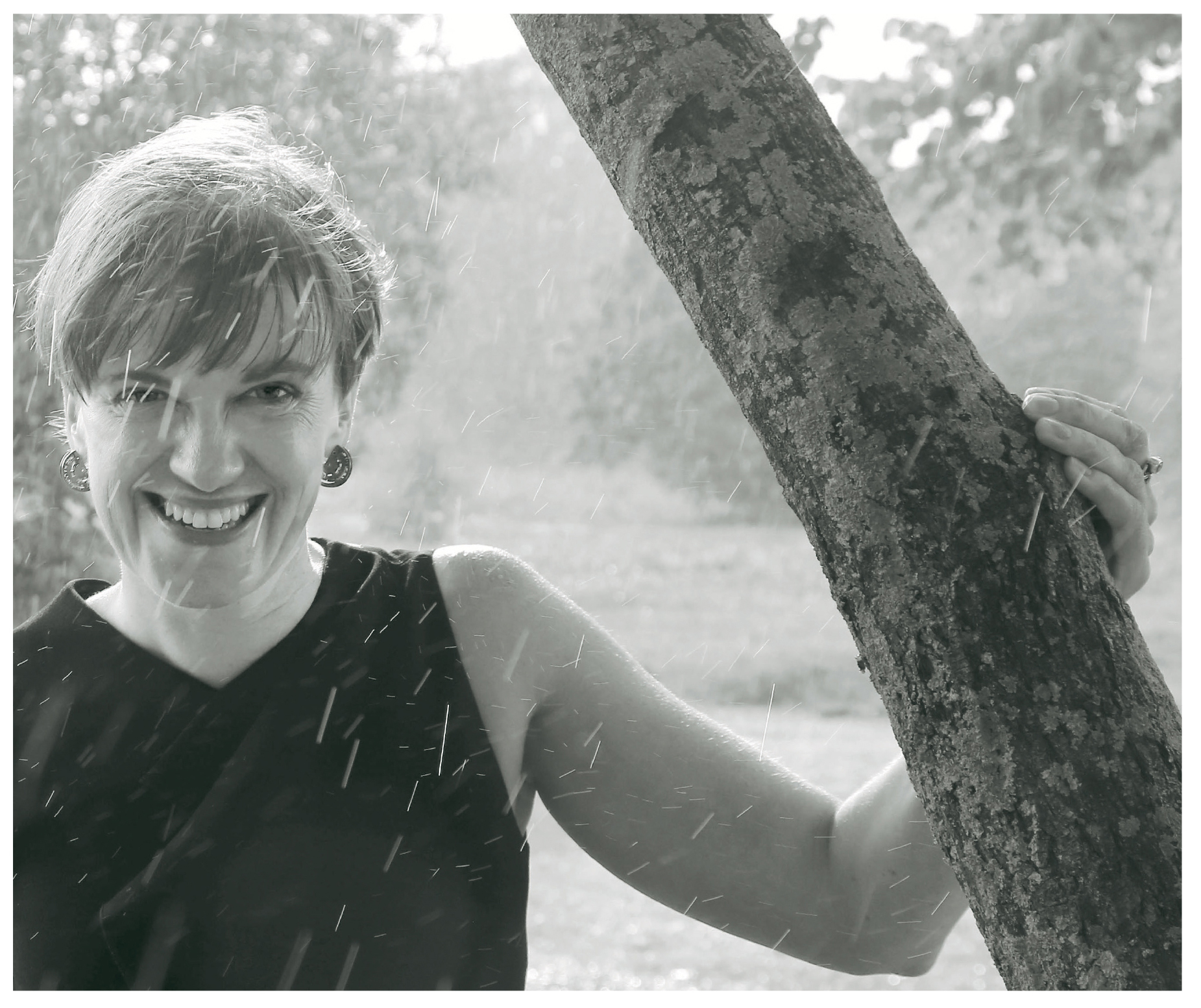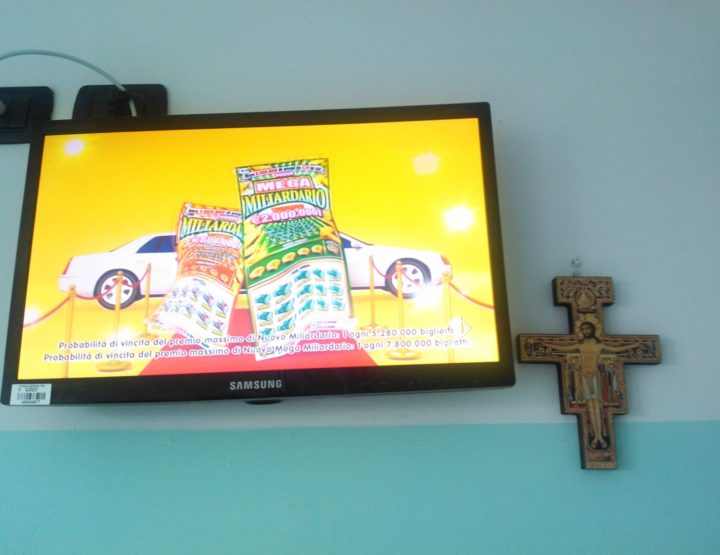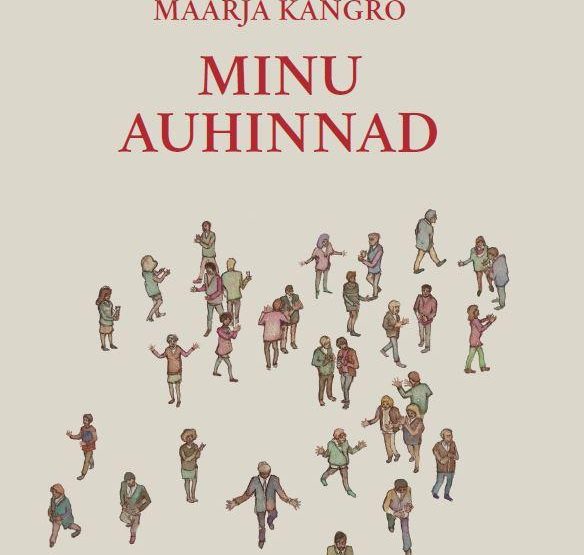Several years ago, Maarja Kangro began publishing bold, sometimes stylistically grating and riotous poetry and prose in Estonian. She is also a translator of Italian literature into Estonian, and is one of the first recipients of the state-sponsored writer’s salary. Kangro doesn’t balk at using the word feminist, though she does reject labels: hanging them around her neck, but askew. In her novel Klaaslaps (The Glass Child, 2016), she approaches places of pain in the first person: the beginning of life, the conditionality of having a child, and the loss of a budding life. What are the reaches of “scientific” power and theoretical thought? To what extent can they be offered by individuals with professional training in medical treatment and compassion? Charged with these questions from her own personal experience, Kangro purposefully walks the brink and travels deep into smoldering crisis, trying to perceive the meaning and value of life in places where it is tested more visibly than in other European countries that are seemingly at peace.
Your book The Glass Child bravely embarks on a journey through the most intimate of pains: the desire to have a child, multiple losses of the child, and the severity of grieving. Why did you choose this frank approach, which is even a shade tougher than physical and emotional nudity?
I suppose I’m the kind of person for whom frankness doesn’t require very much self-transcendence, at least in certain situations. With this book, I never thought even once that I was risking anything; the most difficult part about writing it was, maybe, finding the right tone. I was convinced that the topic needed to be unpacked, so for me it was also a kind of missionary work. It’s a hellacious experience that has happened to a lot more people than you’d think: quite many of them stay silent about it for fear of the stigmas, or at least don’t discuss it openly. And the more repressed the experience is, the more awful the pain. In addition to the loss of future hopes and a new living being, the person can feel like she herself is incomplete, is to blame, is seen by nature as unworthy of reproduction. I looked for any literary works in which the central topic is the loss of an unborn child or a malformed child: there aren’t many of them. In my book, I reference Oriana Fallaci and Kenzaburo Oe, though Mikhail Shishkin has also touched upon the issue with great empathy. There’s not a whole lot of literature about it in Estonia. My aim was to show that you can discuss these things, and can do so quite frankly. The sharing of experience is one of humankind’s most important survival strategies. I decided in favor of documentality and writing about real people so the text would be more salient and impactful. Writing was definitely a therapeutic undertaking as well, an opportunity to process the experience, although a large part of writing is word-therapy, in a way.
But at the same time, you also traveled a lot while the events were happening: to Spain, to a creative house in Italy, and even into the “smoldering crisis” in Ukraine. Anger and desperation lie within the traveler’s daredevil attitude, but in several different places around the world, she also sits in a café, has a latte, and sends text messages. She is a curious but disturbed bystander. What role did these trips play in shaping your book? What does travel mean to you more generally? What are the quandaries of travel for those, for whom a morning latte is (even self-evidently) affordable, not to mention the opportunity for taking frequent and spontaneous trips?
The urge to travel comes from a need for a change of scenery, as well as a wish to leave behind your old shell, your old identity, for a while. A new place where no one knows you and nothing is expected of you provides the opportunity to be a new person, whether even illusorily. And I’m the kind of person who really needs new impressions; otherwise, my mental “wheel” starts idling, and I get irritable and tired out. It’s great to get away to Southern Europe for those dark, unpleasant winter months: Sicily, Andalusia…
In the book, I highlighted a foreign environment out of the desire to show different cultures’ attitudes towards the topic. And with the events in Ukraine, I felt it’d be interesting to convey how a person allows herself to be swept along by “historic” events; to forget her own serious problems and anxieties while clutched by conflict-centric adrenaline. The Ukrainians are fighting for something; the protagonist is fighting for something, also.
I guess travel doesn’t especially pose any quandaries for me. It’s nice to be away and to become another person. When I was a young student, I was annoyed by some Westerners’ uninformed attitudes towards Eastern Europeans. It hasn’t angered me in a long time and, on top of that, people are generally a little better informed. Sometimes, I’m amazed that I still permanently reside in Estonia. But I suppose what I write is still directed towards Estonian readers first and foremost. An author should start writing in a foreign language or another environment very early on in order to become another culture’s writer. Thomas Bernhard disparaged Austria, but was nevertheless an Austrian, and not even a German, writer. Estonia’s readership is definitely tiny in regard to certain genres; for instance, maybe a hundred people or so read more complex poetry. Even so, in a small cultural environment, you can be sure that there’ll be some reaction, whether even an angry one.
On the one hand, people expect medicine (and also in vitro fertilization technology) to provide power and supremacy over (i.e. a breakthrough in terms of) “natural” boundaries; but, in the book, you depict hospitals, doctors, nurses, and other medical workers cynically, showing their limitations and helplessness. The book’s ending also stems from a medical worker’s decision that shows very little reverence for life. What is needed in institutional medicine for employees to be able to cope with the crossing of thresholds, with situations in which a person is a questionable, suffering, frail being?
Medical workers vary greatly, of course. There are those who are extremely delicate and tactful, and there are those who don’t pay so much attention to psychological nuances and the slight shades in tones of speech. It’s understandable that, whereas a patient’s huge trauma is a major event in his or her life, it’s just one case among many others of its kind for a medical worker. It’s not even possible for them to fully relate to everyone: that’d be emotionally destructive. Leaving a medical worker’s personal qualities aside (although they are of key importance!), it naturally tends to be the case that the more resources they have in terms of time and finances, the more they’re able to pay attention to that “human” aspect; to reflect on things from another perspective. When medical workers are short on resources and time, then they don’t have the motivation to show much humanity, either. Soviet-era medical treatment was generally pretty brutal (many of us can remember being chewed out by dentists, cleaners, and administrative ladies alike), and indifferent attitudes are also characteristic of countries and environments with poor economic situations and high levels of corruption.
Your writing is characterized by the portrayal of a “disobedient woman” who brazenly puts “ugly feelings” into words, in the philosophical sense. The Glass Child also speaks through the mouth of a “disobedient woman” about topics that are socially taboo, on the whole. Is one of art’s social dimensions rooted in provocation and the breaking of taboos? Is it a primary phenomenon for you, or rather a side effect?
Provocation as an instigation to react, consider, and discuss is definitely a necessary social dimension of art. That does sound like something an old, idealist avant-gardist who believes in the influence of art would say, but I suppose I believe it a little, anyway. Although it’s been difficult to create anything truly new in provocative art for a long time, I don’t underestimate provocation as a strategy. I certainly never write purely to provoke: that would be superficial, maybe even too, er, youthful. I haven’t been that youthful since childhood – I’ve always got to have a more serious agenda, too, and simply acquiring an external reaction wouldn’t satisfy me. But I’m unable to work for very long on anything that lacks a disturbing element and uncomfortable, maybe even shocking, issues. Rather, it’s somehow developed to where I’ve had the desire to delve into certain topics, and then seen that those topics or the way I handle them turns out to be startling in the broader sense; that they summon comments like “taboo-breaking”, “provocative”, or “audacious”. That kind of a reaction isn’t disappointing. On the contrary, it’s always more pleasing to acquire a provocative tinge so easily, almost effortlessly. I’ve never tried to be a “disobedient woman”; I tend to see myself more in a modernist way. At least in prose, I’m an entirely earnest seeker of authentic expression!
In reality, breaking into new spaces or the attempt to do so is my raison d’être in art. That sounds idealistic again. But I suppose I’m also able to enjoy art that’s made entirely within conventions, or with explicit intentions to entertain.
How do you perceive the reception of your books?
I’ve no reason to complain. In fact, I should acknowledge that the reception has been very lively and positive from critics, the media, as well as readers. I’ve received a lot of feedback and many letters from readers, several of which have been very in-depth: people have commented on what happens in the book, and have also gladly shared events from their own lives. I’m pleased that the majority of reviews have addressed it as a fictional work, no matter that it’s a documentary fiction. What’s truly surprised me has been the fact that religious readers have handled the book so well, even though atheism is manifested in several places and there’s even the Stephen Fry quote about God, over which he was taken to court in Ireland. But people are probably touched by the topic of the creation of new life. There’s no denying that an author is truly delighted when she senses her work is almost expected. Getting first place on all sorts of critics’ charts will make a vain writer chuckle, but you still have to say, “Oh, it’s really nothing!” I might even be spoiled by that kind of welcome reception. It’s possible that I’ll be disappointed if my next book isn’t followed by as much attention and feedback. I’ll think something went wrong!
Tiina Kirss (b 1957) is an internationally-acclaimed literary scholar who has taught at the University of Tartu, Tallinn University, and the University of Toronto. Her leisure activities include knitting and spinning wool, as well as tai chi.




